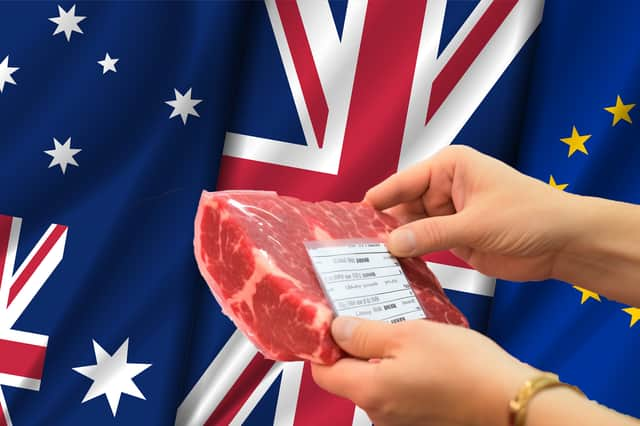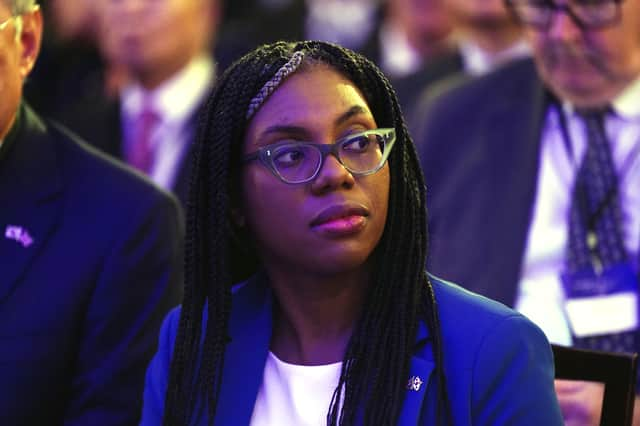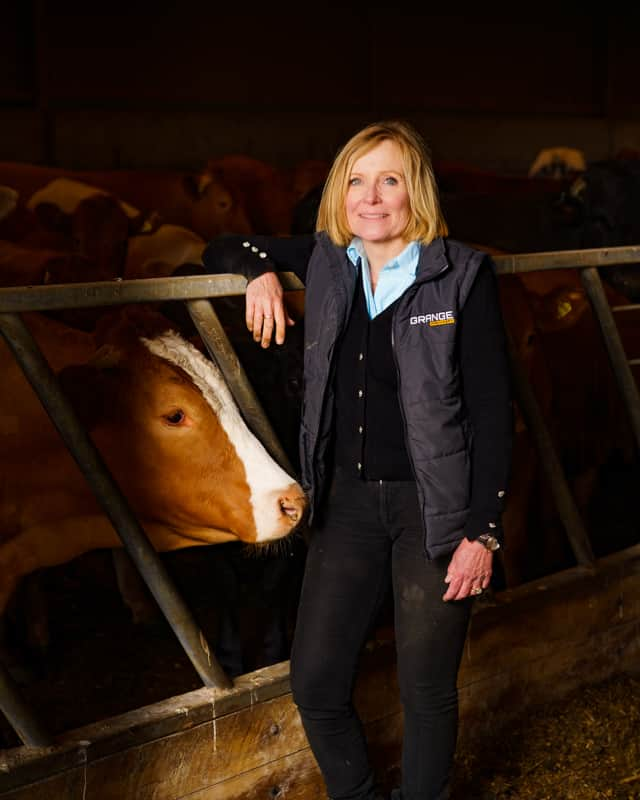Brexit: no British beef exported to Australia under UK’s first post-EU trade deal due to red tape
and live on Freeview channel 276
No British beef has been exported to Australia under the UK’s first post-Brexit free-trade agreement (FTA) as there is too much red tape, NationalWorld can reveal.
Earlier this month, an exporter of beef jerky had its shipment blocked by Australian border controls as the UK government had not requested access. It is thought this is the first time a British business had tried to export beef to Australia under the FTA, which came into effect in May last year.
Advertisement
Hide AdAdvertisement
Hide AdThe trade deal, which was signed in December 2021, was the first FTA agreed by the government after Brexit, and was heralded by Boris Johnson and Liz Truss. At the time, British farmers expressed concerns that they would be undercut by lower quality imported meat. Since then, Australian farmers have exported 1,700 tonnes of beef to the UK, according to the Department of Business and Trade.
However, no beef has been exported from Britain to Australia as the UK does not have a reciprocal agreement. Experts think that under the current system it would take around three years for an exporter to get approved by Australian authorities, even with the FTA. The British Meat Processors Association has written to Kemi Badenoch, the Business Secretary, urging her not to make the same mistake in future free-trade agreements.


CEO Nick Allen wrote: “Our members are always looking proactively for business opportunities and seeing if they can also benefit reciprocally. There are UK operators in Australia right now trying to do this and they have indeed identified opportunities to export beef products to that market only to find that they are unable do to so as currently Australia will not permit the import of UK beef or sheep meat without undertaking a protracted approval process which, put simply, means that Australia considers UK beef and lamb not safe to import unless and until we prove otherwise.”
Allen asked Badenoch for this to be “addressed urgently and that the government requests that Australia reciprocates and allows the import of UK beef and lamb without preconditions”. He added: “Again, we feel UK farmers would be deeply concerned if it emerged that we are prepared to import Australian meat and meat products without restriction but are unable to export to that market despite there being an FTA.”


Advertisement
Hide AdAdvertisement
Hide AdThe BMPA wrote to Badenoch on 6 March and as of yet (14 March) has not had a response. It urged the Business and Trade Secretary to consult with industry figures and farmers ahead of future trade deals.
Liz Webster, a cattle and arable farmer from Wiltshire who launched Save British Farming, told NationalWorld bluntly “British Beef is screwed unless we ditch these bad deals”. Webster, who is campaigning for the UK to return to the single market, said the FTA was “totally flabbergasting incompetence squandering British prosperity for short term adulation of being seen to sign trade deals quickly”.
She added: “No wonder Australia laughed their socks off at us when the deal was sealed - laughing all the way to the bank.”


George Eustice, who was the Environment, Farming and Rural Affairs Secretary when the Australia deal was signed, has since criticised the FTA, blaming it on Liz Truss’ International Trade Department.
Advertisement
Hide AdAdvertisement
Hide AdHe said in 2022: “I no longer have to put such a positive gloss on what was agreed … the truth of the matter is that the UK gave away far too much for far too little in return.”
Leave campaigners claimed that EU trade would be supplanted with deals around the world, although recent figures have shown that hasn’t happened. Instead goods trade has dropped well below all other G7 countries and the UK still relies on working with Europe, just with far more red tape.
A UK government spokesperson told NationalWorld: “The Prime Minister has been clear that we will always put the interest of farmers first and foremost in our trade deals – and we are actively seeking new trade opportunities for our farmers and food producers through our network of agri-food attaches.
“We work closely with the farming industry to identify, prioritise, and resolve trade barriers for food products, including British beef. Industry have been clear that Australia is currently not a priority for market access, but we will keep this under close review should the sector present a strengthened case to explore this market.”
Advertisement
Hide AdAdvertisement
Hide AdA government source claimed that the meat industry had not asked it to prioritise negotiating a reciprocal agreement with Australia for beef. It said it was working with farmers to resolve trade barriers for agrifood products.
Ralph Blackburn is NationalWorld’s politics editor based in Westminster, where he gets special access to Parliament, MPs and government briefings. If you liked this article you can follow Ralph on X (Twitter) here and sign up to his free weekly newsletter Politics Uncovered, which brings you the latest analysis and gossip from Westminster every Sunday morning.
Comment Guidelines
National World encourages reader discussion on our stories. User feedback, insights and back-and-forth exchanges add a rich layer of context to reporting. Please review our Community Guidelines before commenting.
